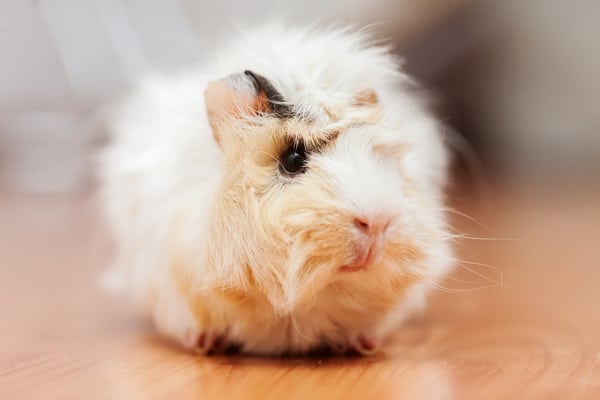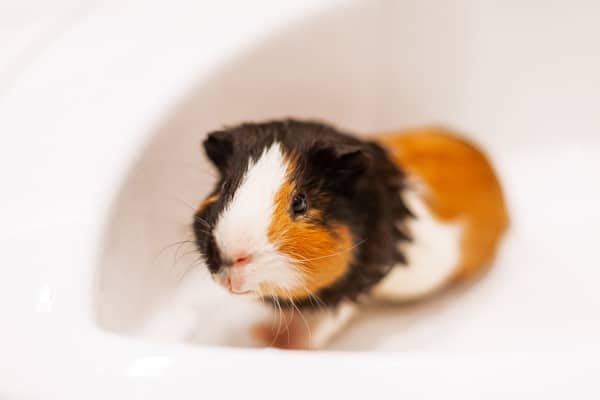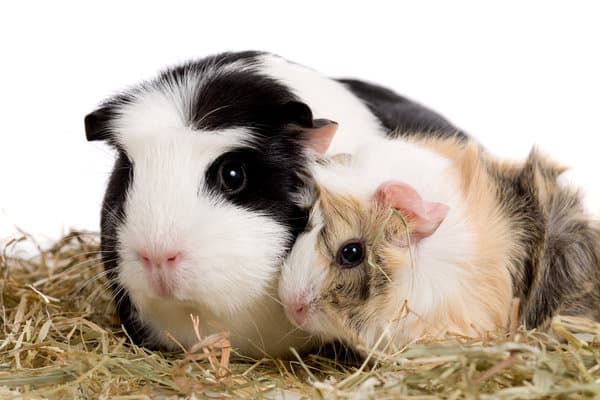Do Guinea Pig Bites Hurt
In the world of small furry animals, guinea pigs are often seen as cuddly companions. But a guinea pig bite can be a surprisingly painful experience.
This article will take a look at what guinea pig bites are, if they are painful, how to prevent them, and what to do if you are bitten. With this information, you can learn how to protect yourself and your guinea pig from any unexpected nips.
Key Takeaways
- Guinea pig bites can vary in intensity, with larger guinea pigs potentially causing more pain.
- Smaller guinea pigs are less likely to cause serious pain when biting.
- Proper handling techniques and understanding guinea pig behavior can help prevent bites.
- It is important to assess the severity of the bite and seek medical attention if necessary.
What Is a Guinea Pig Bite
A guinea pig bite occurs when a guinea pig uses its teeth to clamp down on a person or object. Guinea pigs are naturally curious animals and may bite if they feel threatened or if they are startled. Understanding guinea pig behavior and taking the proper steps to prevent bites is essential for a safe and happy pet-owner relationship.
Guinea pigs can bite out of fear, curiosity, or frustration, so it is important to provide a safe and comfortable environment and to be mindful of how the guinea pig is feeling. Guinea pigs may also bite in response to being handled incorrectly or roughly.
To prevent bites, it is important to handle guinea pigs gently and calmly and to pay close attention to their body language. If a guinea pig appears nervous or scared, it is best to stop handling it and allow it to calm down. It is also important to provide plenty of chew toys for the guinea pig to play with, as this can help reduce the risk of bites.
Are Guinea Pig Bites Painful
Guinea Pigs can deliver a nip or bite when they feel threatened or frightened, and these bites can cause pain. While some guinea pigs may not bite at all, others may bite more often.
This is usually due to fear, and it is important to handle them correctly to prevent any bites from happening. To do this, it is important to learn about their natural behavior and understand how they act in certain situations. With the right handling techniques, it is possible to minimize the risk of a bite.
When a guinea pig does bite, the intensity of the bite can vary. Depending on the size of the guinea pig, the bite may be more or less painful. For instance, a larger guinea pig may be more capable of inflicting more pain. On the other hand, smaller guinea pigs may be less likely to cause serious pain. It is important to be aware of the guinea pig’s size when handling them.

How to Prevent Guinea Pig Bites
Proper handling and understanding of guinea pig behavior are key components to preventing guinea pig bites. In order to avoid being bitten by a guinea pig, it is important to be aware of the animal’s body language and to use appropriate handling techniques.
Guinea pigs are naturally skittish animals, and can become easily frightened if handled improperly. When interacting with guinea pigs, it is important to move slowly and to avoid sudden or jerky movements. Additionally, guinea pigs should never be picked up by their fur, as this can cause discomfort and lead to an unwanted bite.
Instead, they should be gently supported with both hands, and should never be squeezed or held too tightly. Finally, it is important to never startle a guinea pig by making loud noises or sudden movements near its cage. With proper knowledge of guinea pig behavior and careful handling, it is possible to prevent guinea pig bites.
What to Do if You Are Bitten by a Guinea Pig
If you have been bitten by a guinea pig, it is important to take appropriate steps to address the issue.
Firstly, assess the severity of the bite and seek medical attention if the wound is serious.
Secondly, look for any signs of infection and contact a vet if you are worried.
Thirdly, consider any changes to the guinea pig’s diet or behavior that may have caused the bite. For example, if the guinea pig is not getting enough fiber in its diet, it may become more aggressive.
Additionally, guinea pigs may bite if they feel threatened or scared, so a change in environment or introduction of new animals may also lead to increased aggression. Finally, provide the guinea pig with extra attention to make sure it is comfortable and happy.
Conclusion
Guinea pig bites are not typically dangerous, but they can be unpleasant. It is important to remember that, like all animals, guinea pigs may bite when frightened or feeling threatened.
To prevent guinea pig bites, it is important to handle them with proper care, avoiding sudden movements or loud noises. If a guinea pig bite does occur, it is important to remain calm and apply gentle pressure to stop the bleeding.
Taking the proper precautions and recognizing the signs of a guinea pig’s distress can help to ensure a safe and enjoyable experience with these beloved pets.







